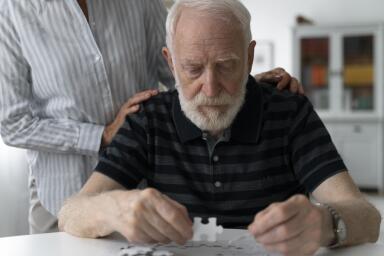The health of the population has a crucial impact on the competitiveness of companies and the national economy, as well as on the defence of the country. Investing in population prevention therefore seems essential from the perspective of both industry and defence. The participants of the Eurodebate of Ekonomický deník, Česká justice and Zdravotnický deník on the topic The Future of Europe – an Agenda for the New European Parliament and the European Commission, in which MEP Tomáš Zdechovský (KDU-ČSL), army general and former Chief of the General Staff Jiří Šedivý and other guests discussed, agreed.
MEP Tomáš Zdechovský (KDU-ČSL) believes that the health of the population plays a crucial role in the competitiveness of companies and the national economy. „A healthy population is much more productive at work. Health has a direct impact on this. People with good health are able to work more efficiently and longer. Sick people, on the other hand, can miss work for longer periods of time due to health complications, which can have a negative impact on a company and its competitiveness on the market,“ Zdechovský said in the Eurodebate.

This, of course, translates into health care costs, he said. „Increased costs for medical care and health insurance can mean higher employee costs for companies and ultimately reduce the profitability of businesses,“ Zdechovský said. „Healthy people have a greater desire to develop their skills and contribute to innovation in companies,“ he noted.

EY’s CEE Automotive Partner Petr Knap agrees that productivity and the ability to deliver consistent performance in line with company requirements are closely linked to health. „As the population continues to age, the relatively low healthy life expectancy may play against the Czech Republic. And probably only in the short term will we be able to ‚afford‘ to virtually not employ people over the age of 50. At the same time, these are loyal and often very efficient employees who could fill a variety of positions and do a lot of work, at least on a part-time basis,“ Knap said in the Eurodebate.
Jaromír Hanzal, director of the Association for Applied Research in IT, supported this view in the debate. „We know from our members who are involved in healthcare and its digitalisation that one of the biggest health problems in the Czech Republic is indeed the low healthy life expectancy – our life expectancy is similar to that of Western Europe, but we are chronically ill much earlier. The most important health research projects currently underway in the Czech Republic are directed at lifestyle monitoring, which has a major impact on this. There is no doubt at all that this problem also has a negative impact on our economy,“ Hanzal summarised.

Health as a key to setting military priorities
The debate then turned to defence. Once again, the participants agreed that the impact of the health of the population on the defence of the state is very important. „The health status of the population, especially the part that can join the army – as professional soldiers and possibly as reservists – has a major impact on building the defence capacity of the state. Not only does deteriorating health reduce the number of suitable Czech citizens who can be recruited into the army, but the health of soldiers already serving can also limit their ability to perform the demanding tasks of military service,“ said army general and former chief of the general staff Jiří Šedivý in the discussion, adding that the defence ministry pays great attention to this area.
Therefore, he said, investment in the prevention of the population is essential. „Logically, not only from the needs of society in general, but from the point of view of maintaining the necessary level of national defence. This is not only reflected in the army itself, but it also translates into the ability of citizens to participate in crisis situations. Other forces, such as the police or fire brigade, also need medically fit citizens. So it is a broader area than just building defence capability in terms of the functioning of the army,“ explained General Šedivý.

MEP Zdechovský confirmed that it is important to take into account the health of the population when planning and implementing long-term defence strategies and policies. „The health of the population has an impact on the availability and quality of the workforce, not only in the defence sector. The health and skills of young people are important for recruiting and retaining qualified soldiers and personnel in the army. The health of soldiers is key to their performance and ability to perform military tasks. The increased need for health care for soldiers may mean higher costs for military health care,“ Zdechovský said. Demographic trends, such as an ageing population or declining birth rates, can have long-term implications for strategic planning in the defence ministry, he said. „Governments must take into account the composition of the population when setting military priorities and long-term strategies. The health of the population is also linked to the provision of essential services and infrastructure that are necessary for defence purposes,“ he said.

According to Zdechovský, investing in population prevention can have a significant positive impact on the country’s defences. „Population health directly affects a country’s ability to mobilise and maintain a healthy workforce. Military effectiveness depends on how well soldiers are physically and mentally prepared. Investing in prevention and health education can lead to higher levels of health and fitness among the population, which will be reflected in the event of a threat to the country,“ the MEP said. Investing in prevention can reduce healthcare costs, he said. „The money can then go into investing in the military, for example. Simply, a healthy and resilient population is a key element for successful defence and overall national security,“ Zdechovský concluded.
Jakub Němec
Mohlo by vás zajímat
Photo: Radek Čepelák












